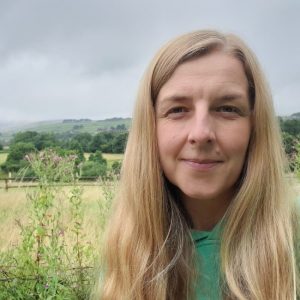Could you tell us about your contribution, Natasha?
I have become an Associate Professor through an outstanding contribution in external and professional engagement and academic citizenship and leadership. I was also recognised for my significant contribution to research and innovation.
My external and professional engagement has focussed on sustainable, equitable geoscience. My work has involved advocacy in the international geoscience community, aimed at making geoscience more equitable and accessible to people from all backgrounds. I have led action research interventions to improve equity in postgraduate research, published evidenced strategies and action plans for change. I have also spoken with funding councils, academic departments and geoscience professionals in the UK and abroad to raise awareness and generate meaningful reform within the discipline.
I am the founder of the Geoscience for the Future initiative, which showcases geoscience projects aimed at tackling the climate crisis and sustainability challenges. It also connects students with professional geoscientists for outreach and engagement. In 2022 I was awarded the Geological Society of London Coke Medal for significant contributions to geoscience to recognise this work. I hold a variety of external roles, including an elected position as a council member for the UK geoscience professional body, and a trustee position for the charity Geology for Global Development.
Alongside my advocacy work, my research specialism is in volcanology. I am part of an external collaboration that seeks to better understand the physical dynamics of pyroclastic density currents (flows of hot ash, gas and rock associated with explosive volcanic eruptions). We have a vibrant research group and undertake fieldwork and laboratory analysis to improve our understanding of these deadly hazards. We have recently won funding to extend the scope of our work.
What does it mean personally to you to be an associate professor at Hallam?
I value being awarded associate professor at Hallam because I have not taken a traditional academic pathway. I am glad that my external work was recognised in this way, and hope it encourages others to see the value in this kind of work.
Tell us a bit about your career story so far.
Growing up in an ex-mining town in Cornwall, I didn’t understand what being an academic was – I just knew I was passionate about how the planet worked. That passion drove me to continue in education right through to a PhD in volcanology.
After my PhD, I moved into geoscience research consultancy in 2012. I learnt a huge amount from industry and was fortunate to be involved in mentoring and graduate training of early career scientists. After a time, I became disillusioned with the lack of diversity and modern thinking in my company and returned to academia in 2019 with an urge to teach the next generation about progressive, sustainable geoscience for tackling the climate crisis.
I became a geology lecturer at the University of Hull, where I reconnected with my volcanology network to develop exciting new research ideas. Launching Geoscience for the Future allowed me to connect with geoscientists at other institutions keen to tackle the problems and inequity within our discipline.
I moved to Sheffield Hallam in 2021, where I have been fortunate to be involved in some great projects, with fantastic collaborators- as well as working alongside an inspiring teaching team who share my values. I am grateful to all the people who have supported me during my career journey so far.
If you could go back in time and give yourself some career advice, what would it be?
The path may not always be straight or clear, but the people around you are always what matters.
What’s next? Tell us about how you want to further develop your contribution.
My future plans include:
- further advocating for improved race equity in doctoral study
- integrating equality, diversity and inclusion and anti-colonial research within geoscience pedagogy
- contributing to Hallam’s climate action agenda
- generating innovation in volcanology through novel experimentation
- contributing to reforms within the professional body that shape the future of geoscience.